I was completely captivated by the Dyatlov Pass incident. I read every article I could find on the topic, including Matveeva’s book. Yet, I couldn’t find what I was searching for until I read “One Hundred Days in the Urals” and the publications marking the 40th anniversary. Throughout my exploration of the ideas, literature, thoughts, and the LiveJournal community, I couldn’t shake the feeling that something was missing. Not that the story itself was incomplete – almost fifty years have passed, and it still remains unsolved. Maybe tomorrow, or next year, some classified materials will be released, and we might finally know the truth. But for now… For now, the nine young people haunt me, compelling me to think about them, read about them, and write. For now, that’s all I can say. My head is full of ideas, with scenes and fragments constantly playing out in my mind. Oh, what a film I could make! But these are just projects, fragments of scenes, sensations…
When I close my eyes, I feel as if I’m there. I feel the piercing wind, the cold creeping from my feet to my heart, the pain for my dying friends, the pain where my fingers end. I have an overwhelming desire to be there among them, to step on the snow with my heel so that a stray footprint might be found and go unrecognized, to see with my own eyes what happened. To help them die peacefully by helping them survive as long as possible. To send them strength. A lot of strength. And to know for sure what happened. I almost know. Almost certainly. But something is still missing.
Finally, I encountered a theory explaining the Dyatlov group’s demise, which elegantly and logically (to a teeth-gritting degree) not only clarifies the reasons for what happened to the Dyatlov group but also supports it with a fascinating array of facts! The author of this theory is A.I. Rakitin. This reading is phenomenal, not only because of the author’s extensive knowledge but also because it is incredibly engaging. I recommend it to anyone interested in domestic history.
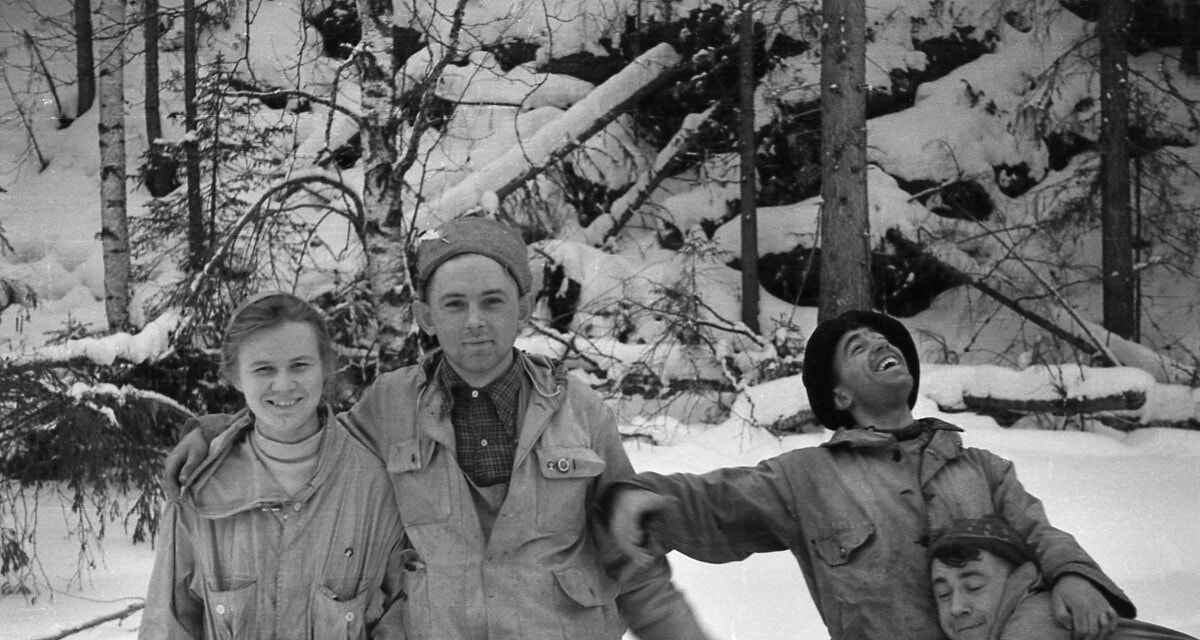
When I first learned about the tragedy, I read a lot of materials on the subject, except for Rakitin’s version (for some reason, it didn’t come my way), and none of the proposed theories seemed plausible to me. They provoked a lot of frustration regarding people’s illogical attempts to prove their theories. But Rakitin constructed not only a remarkably logical version but also documented it with numerous facts, many of which were indirectly related to the tragic expedition. This theory can only be unconvincing to those who are panicked about being labeled “paranoid” or those who fundamentally refuse to acknowledge the influence of counterintelligence, particularly Russian counterintelligence.
One critic noted that “Rakitin’s logic has one flaw: he attributes psychological traits and characteristics of today’s infantile, cowardly teenagers to the expedition members. This fundamental mistake, in my opinion, nullifies all his arguments.”
It doesn’t seem at all that Rakitin attributes “psychological traits and characteristics of today’s infantile, cowardly teenagers” to the tourists. He is simply very modest in putting forward hypotheses that are hard to substantiate with facts or are based on presumed behavioral tendencies. He only briefly suggests why the Dyatlov group might have behaved in one way or another. Meanwhile, his theory leaves many “white” spots that cannot be explained: their secret was taken to the grave by the Dyatlov group.
Infantile personalities would have acted to ensure their own survival. Infantile cowardly personalities would never have abandoned their own warmth, nor would they have climbed cedars half-naked, scraping their hands in the process, to save everyone else. Cowards wouldn’t have rushed to save their friends at the risk of their own lives…
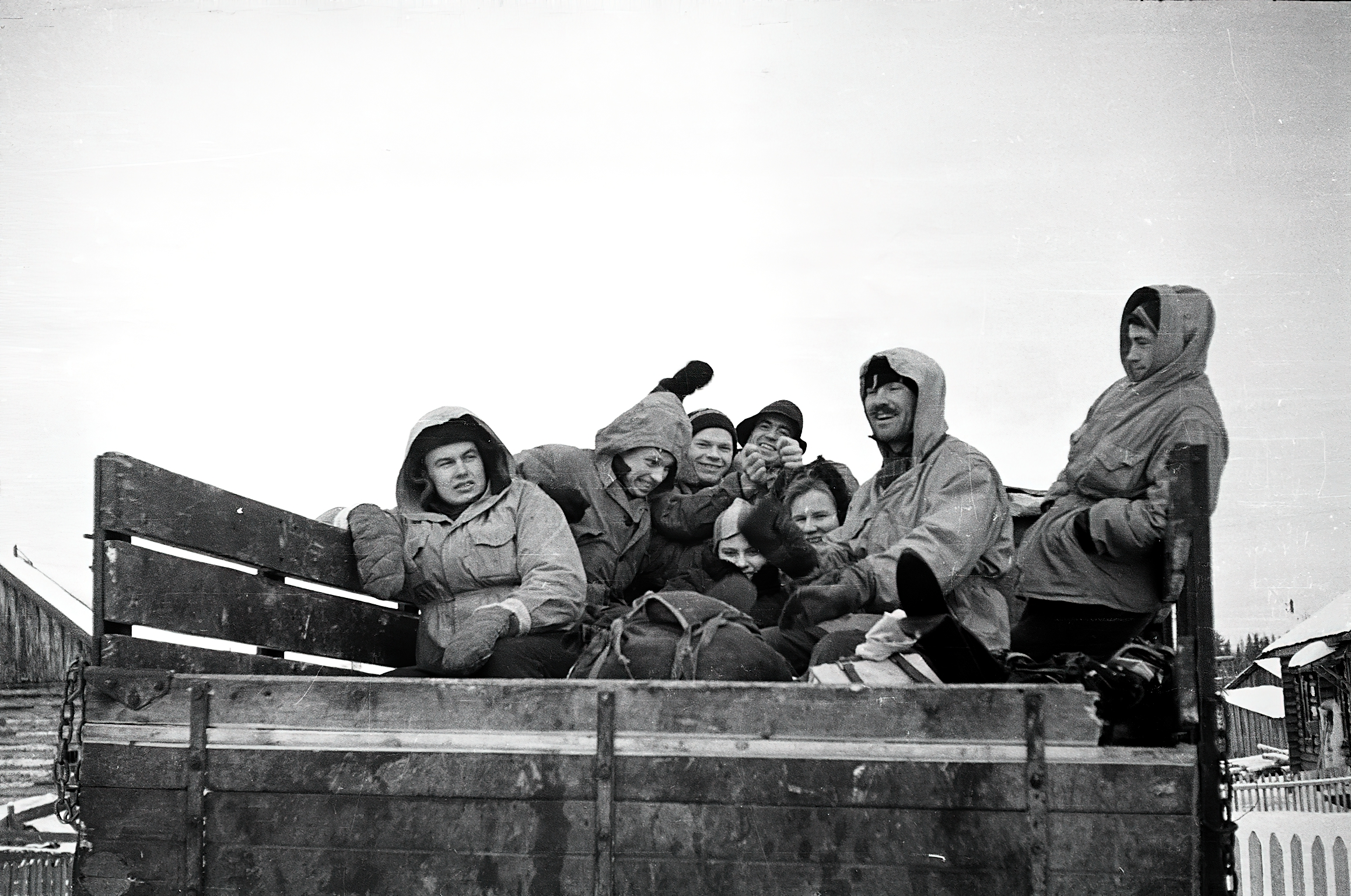
The tourists had many weak points, and one of them was the presence of women among them. And not just any women, but virgins. At that time, honor (including a woman’s honor) was of great importance to people like the Dyatlov group. If we trust the hypothesis about foreign spies who would stop at nothing and were intent on eliminating the group, they wouldn’t have hesitated to use methods of “intimidation” involving the women. Perhaps when the order to “undress” and “leave the tent” was given, the tourists didn’t act cowardly. This is confirmed by the beaten Rustem, who likely charged at armed terrorists without a firearm. Why didn’t the others join? It’s possible that one or both women were taken hostage (perhaps that’s why they were dressed warmer than some of the men – they were immobilized while the men in the tent undressed). Maybe a gun was held to the women’s temples. Considering that Zina had at least two admirers in the group, they would have obeyed without question: no one wanted to risk her life. Yes, even if she didn’t have “admirers,” it wouldn’t have made any difference.
In reality, the rest of the time, the tourists not only didn’t show themselves as cowards or “infantile” teenagers but behaved heroically: they lit a fire half-naked in the cold, redistributed items among those who had a chance to survive that night, and not to mention that Dyatlov rushed to save Rustem with very little chance of survival – not only because he was almost barefoot but also because the threat from those who drove them out of the tent possibly remained active: after all, not much time had passed since they moved to the cedar, and Dyatlov couldn’t be sure that returning to the tent was safe. On the contrary, he likely understood that the closer he got to the tent, the greater the threat. But Dyatlov still went back – in socks, barely dressed. And judging by the fact that he didn’t reach Rustem and froze along the way, he knew he was likely going to freeze. At least, judging by how long it might have taken him to climb towards the tent and that he fell a little short of the already deceased Rustem, he weakened quickly and froze – it’s clear that he set off after Rustem when he was already running out of strength, freezing. If he had been a coward, he would have stayed by the saving fire. But he wasn’t afraid of a terrorist’s bullet or death from the cold. And he didn’t ask anyone for shoes or extra clothing, which would have increased his chances. Most likely, he simply made a decision and went back without thinking. He either walked to his death or to luck. He didn’t take any precautions.
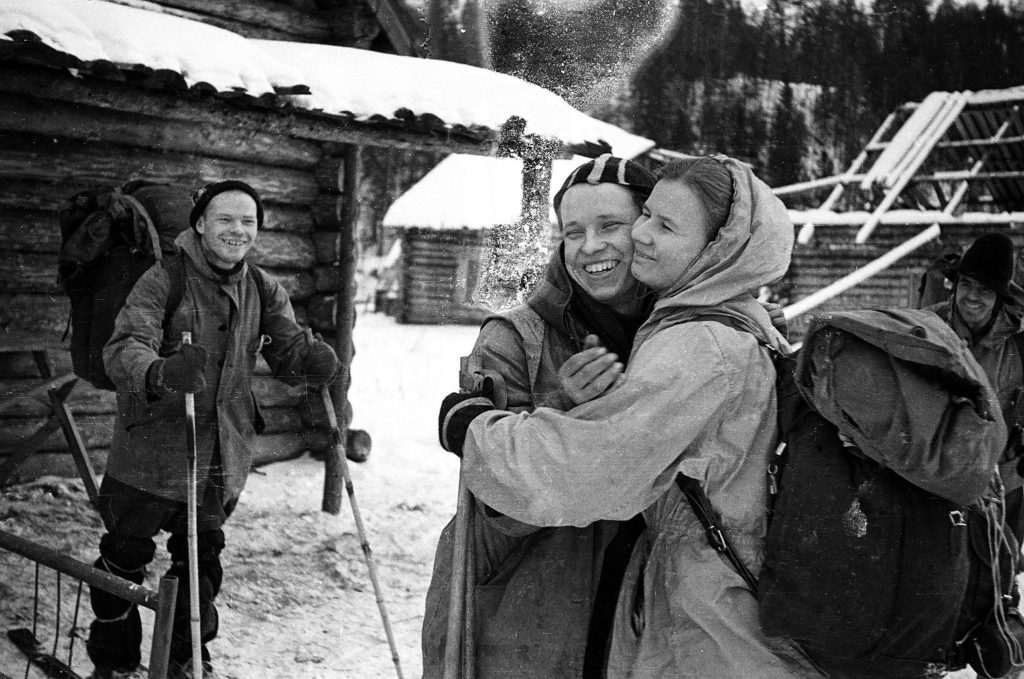
The fact that Zina, without proper footwear, ran after him is even more impressive to me than the deeds of the Decembrist women. Zina risked freezing and falling back into the hands of armed terrorists, who certainly wouldn’t have shown her any reverence, to say the least. She didn’t stay with the strong, well-dressed men. She didn’t stay by the fire. She didn’t even ask anyone for shoes to increase her chances of reaching and saving Dyatlov or Slobodin. She didn’t even think about how she would drag one or both of them back if she found them – none of that mattered to her at that moment. She just rushed to save them, without thinking of herself for a moment, risking death in at least two ways. She simply couldn’t live without rushing to help, although anyone would have understood her in that situation. It’s a heroic act. I even think that the others might have tried to dissuade or stop Zina, but she was absolutely determined to selflessly save Dyatlov (her beloved) and, if possible, Slobodin. And when she found Dyatlov, realizing that he was already dead, she continued to search for Slobodin and perished herself.
Why didn’t those who were sitting in the ravine go out to save Georgiy Krivonischenko and Yuri Doroshenko? For several reasons. One – because there was something greater at stake for them than just themselves and the whole group combined – state secrets. Again, it’s important not to forget that there was a woman with them. Besides all the secrets, she needed to be protected – it’s instinctive. There’s absolutely no cowardice in that.
Another point that might suggest that the surviving tourists were cowards – Dubinina went alone to remove more clothes from the dead friends. But again, we don’t know why they let her go alone. Maybe it was optimal. Maybe she ran away herself (being not a coward at all – this episode certainly doesn’t portray her as such), and the others didn’t call her back to avoid attracting possible unwelcome guests…
In general, in none of the episodes of Rakitin’s theory did the tourists prove themselves to be infantile cowards. On the contrary, they acted as heroes.
So if the “cowardly and infantile” image of the tourists that Rakitin supposedly creates is his only weak point, then I have just tried to nullify that weak point. In my eyes, Rakitin’s theory has no weak points. 🙂
About the KGB version of the Dyatlov group’s death.
I’ve been thinking about this. I even started to think, maybe the body found as “Zolotaryov” was not actually Zolotaryov? It’s unlikely that KGB agents would take someone with tattoos…
There is an opinion on the internet that the tattoos might have been a kind of “password” for establishing contact with foreign spies. I categorically disagree with this version: Krivonischenko should have been the contact. He was “recruited” to pass samples of radioactive dust. There should not have been any other “agents” in the group! According to Rakitin’s version, Zolotaryov was the leader of the counterintelligence group, who definitely shouldn’t have “exposed” himself.
My version of why Zolotaryov (the KGB agent) had so many tattoos.
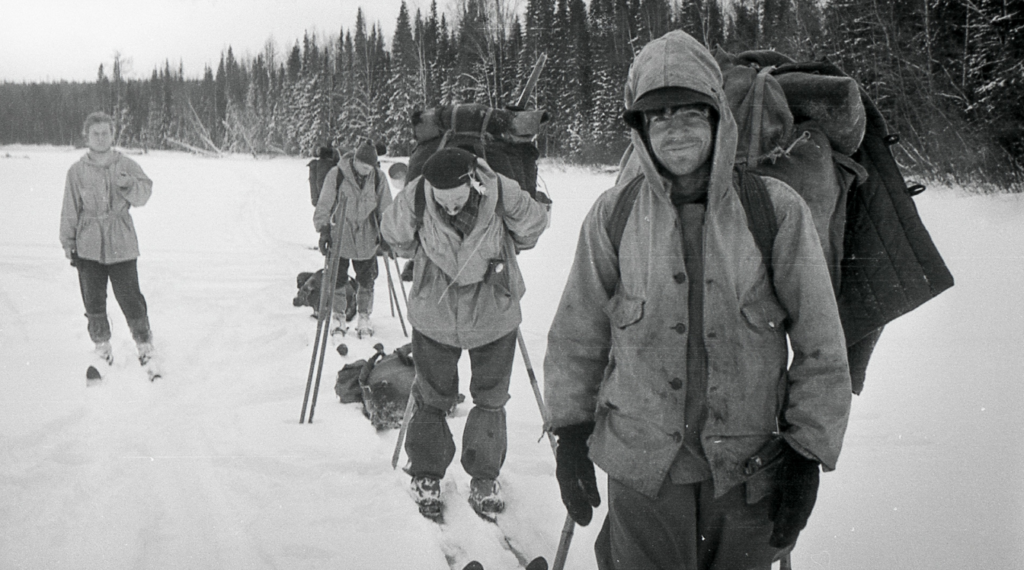
It’s very simple. Zolotaryov stood out among the group of young students – by age. He could “scare off” foreign spies. Tattoos (some say tattoos could well be “thief tattoos”) might have been applied to him before the hike, so that the spies wouldn’t suspect him of being associated with the KGB. Maybe the committee knew that among the foreign spies there could be a former recidivist – who knows, although it’s unlikely. But, I think, the version of the “distracting” purpose of Zolotaryov’s tattoos can be quite viable. Quite a large part of Semen’s tattoos were on the back of the forearm: he only had to roll up his sleeve to the elbow to make the tattoos visible. If the spies suspected Zolotaryov of being a “setup,” just one look at the tattoos could be enough to, at least temporarily, “calm” the spies. Especially considering that Zolotaryov probably had to photograph them, he shouldn’t arouse any suspicions.
My version of one of the girls (or both) being [temporarily] taken hostage to force the others to undress, after which Rustem was beaten, confirms the following. Photos of tracks leading away from the tent show a chain of relatively small footprints, it is assumed that these could be female footprints. For some reason, I feel that if it were the footprint of a woman who was part of the group, it wouldn’t be to the side. Most likely, the guys would have let the woman go ahead of them or lead her in the middle, not to the side. Maybe this is the trace of a person who was “catching up” with the group, because this chain seems to go a little to the side of the main group’s tracks.
How I see it: one or both of the girls were taken hostage. Maybe a gun was pointed at her temple. Maybe the terrorists threatened violence against the women if the group didn’t undress quickly and leave the tent. At least one of these arguments was enough for the group to comply. Most likely, Zina was taken, as the most beautiful woman. It seems that one held Zina, while the other controlled the others, aiming a weapon at them. During the undressing process, after removing one boot but not having time to remove the other, Rustem saw an opportunity to attack one of the terrorists (perhaps the one who held Zina) and tried to disarm him. He seized the opportunity as soon as he could but was stopped and beaten. According to Rakitin, he briefly lost consciousness. Perhaps this prompted the terrorists to drive out the others without waiting for complete undressing, so that no one else would risk resistance.
This thought quite explains why Zina was dressed quite well, while Lyudmila was in a rather poor condition. Zina only lacked shoes and a warm jacket, which is quite understandable, since she was inside the tent and probably planned to put on her inner footwear soon. So, Zina was still captured. Rustem lay unconscious with one boot on. Perhaps the terrorists thought they had killed him. When the terrorists saw that the group had moved a considerable distance, they released Zina. Zina was brave and bold, perhaps realizing this (that she could fight them), they immediately made her leave, maybe this time another (as it turned out) still alive Rustem was the “hostage”. Zina runs after the rest of the group. I don’t know why she didn’t follow the main group’s tracks, maybe it was already dark and she couldn’t see the white tracks on the white snow without a flashlight very well, but she saw them ahead with a flashlight and oriented herself. Perhaps this explains why one chain of footprints goes as if parallel to the main group’s tracks.
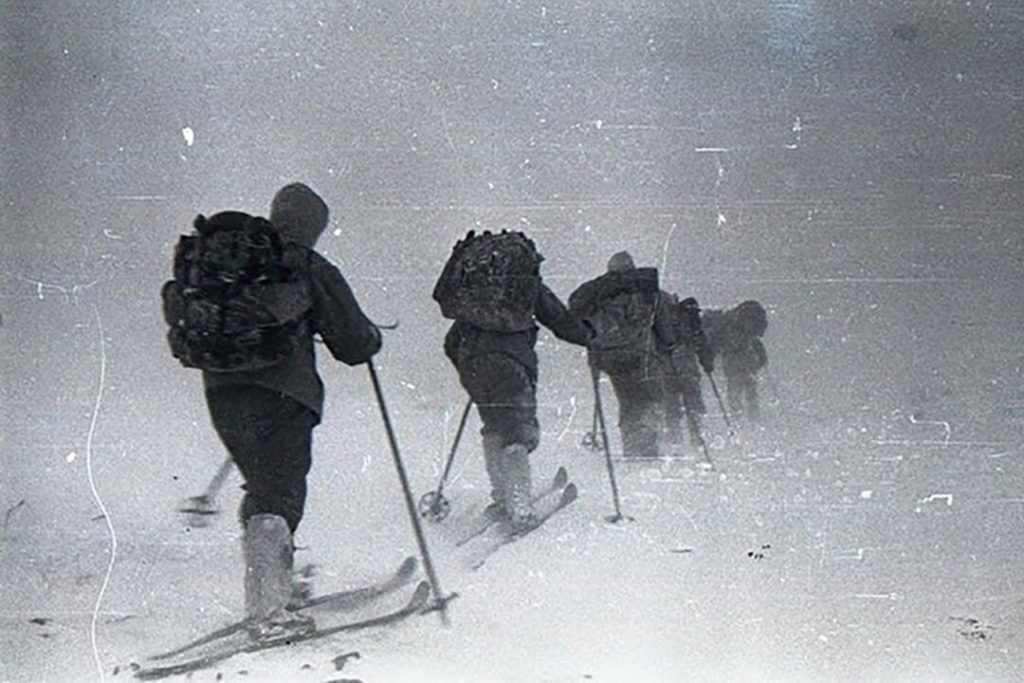
After a few minutes, Rustem comes to his senses and is ordered to clean up the tent. Obviously, being alone and still barely conscious (judging by the fact that he fell while trying to catch up with the others, he was in a very foggy state), he didn’t try to resist anymore and complied, ending up in a single boot. I don’t think they would have made him take it off, perhaps assuming that he was already “non-residential,” or maybe because they wanted to get rid of him quickly in the cold, or perhaps he was in such a bad state of mind after being beaten that the terrorists decided they didn’t want to deal with him and just chased him away. If Rustem had been walking with the others, he definitely wouldn’t have been trailing behind: being beaten, he would have been led “by the hand.” He definitely caught up with the group when they had already gone some distance. Moreover, about 5 minutes after Zina left, otherwise she would have waited for him and supported him.
So, 7 people descend to the cedar. Zina catches up with the group almost at the cedar. Here, perhaps Dyatlov sees that Rustem has come out of the tent, or Zina said that he is still alive. Maybe Dyatlov noticed Rustem falling – and Dyatlov decides to go back and support him. Perhaps Zolotaryov, Lyuda, Thibeaux, and Kolevatov immediately went to the ravine to make a bed. But it was Dyatlov, though poorly dressed, who decided to return for Rustem. Perhaps Zina saw that he also fell or was walking with the last of his strength… It seems to me that Zina (who stayed in the tent longer than the others and with a considerable amount of adrenaline in her blood) felt quite confident and warm – even though she was without shoes – she held out quite long in the cold: reached the cedar, and maybe helped gather firewood, and returned for Dyatlov.
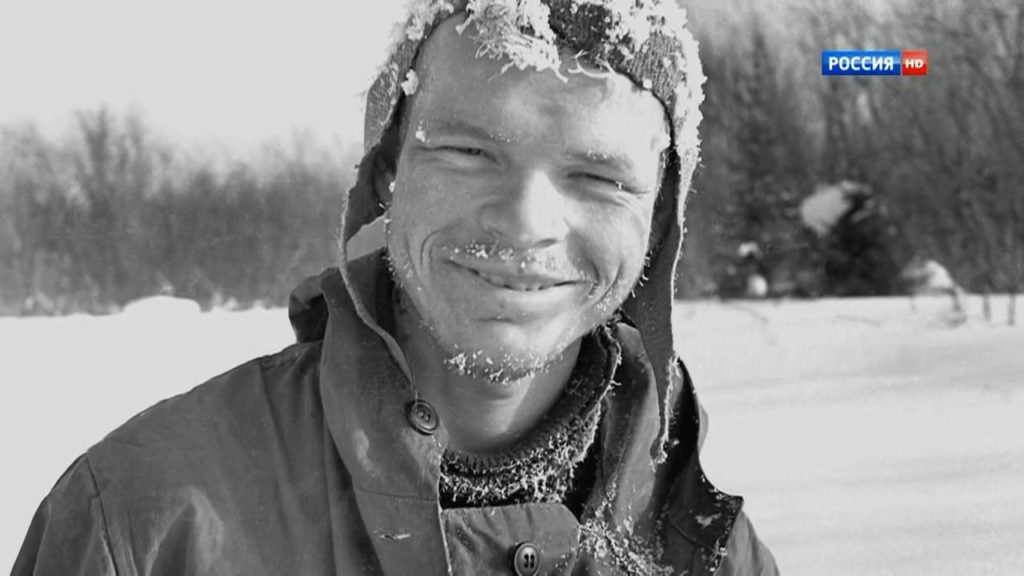
Why was her body found closer to the tent? Perhaps she found Dyatlov frozen and tried to look for Rustem. And either, finding him also dead, got angry and wanted to return to the tent to engage in a mortal fight or at least do something to harm the terrorists. Or, hoping to quietly approach and drag something away from the tent that could help the guys – at least some clothes, maybe an ice axe, maybe skis that were stuck near the tent… But she overestimated her strength.
Why did the two least dressed guys start the fire? Maybe they were dressed similarly to Lyuda and Kolevatov. But Lyuda was a woman, and Kolevatov could not only be a third agent but (according to those who knew him) was known as not such a heroic personality: he sometimes liked to show off in front of others. He didn’t do it often, but those who knew him noted that sometimes his attempts at boasting were unpleasant. Real heroes don’t boast about their heroism. Perhaps slightly distorted self-esteem (plus the fact that he was one of the participants in the special mission) played a role in the fact that he did not stay to light the fire.
Or maybe it was decided that the guys, working on the fire, would warm up better than those who would look for a place and arrange the “bed”. The bed had to be organized as quickly as possible: so that they could comfortably sit down not on bare snow and redistribute clothes to warm up Lyuda and Kolevatov, this was also important.
Having chopped enough firewood so that their feet didn’t freeze too much, the guys needed to keep the fire going for Dyatlov, Rustem, and Zina to be able to return. The guys still hoped for their return. Perhaps the terrorists went to the cedar because they saw the fire. Or maybe because they noticed Zina, who was returning towards the tent (remember, they had “observation” slits at the top edge of the tent). Either way, they returned.
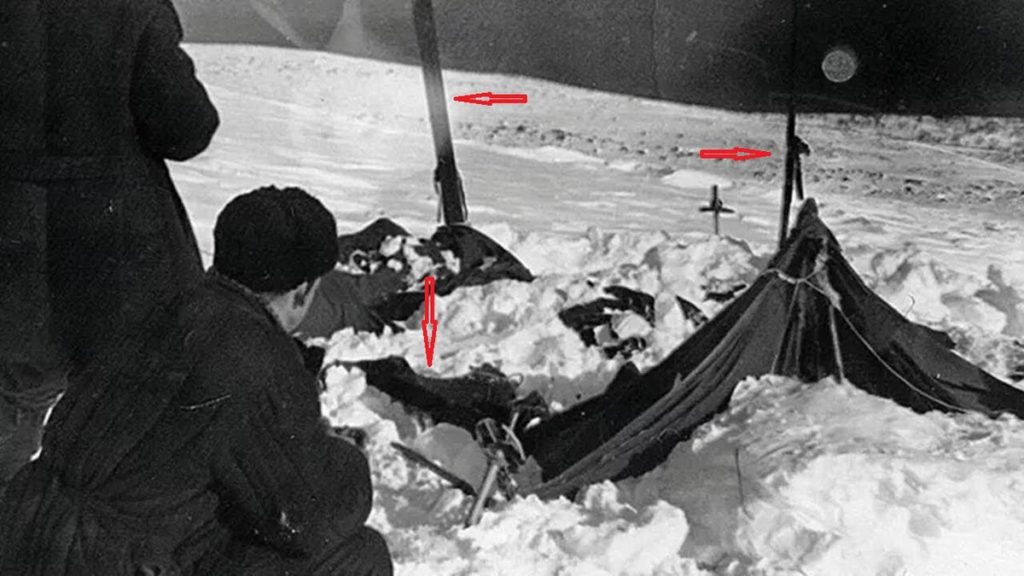
Why didn’t those who were sitting in the ravine come back to save Krivonischenko and Doroshenko? Someone commented that Doroshenko was tortured so much that he must have been screaming his lungs out. Actually, if someone (according to Rakitin’s version) was sitting on his chest and he started to suffocate slowly, he wouldn’t be able to scream. From personal experience, I know that when (even for a short time) there is weight on the chest, a person quickly experiences a lack of air, and not only shouting but also speaking becomes difficult, quietly. Maybe those sitting in the ravine didn’t immediately realize that the terrorists were already at the cedar. I think the approach to the cedar from the side of the tent was either not very visible from the ravine or the terrorists were wearing white camouflage suits: I’m sure those in the ravine had time to warn their friends and bring them back to the ravine if they noticed the danger approaching. I think they realized that Doroshenko and Krivonischenko were in mortal danger when it was already too late. It’s very likely that they didn’t even realize this and were surprised to learn it when they returned for their friends, but only found their bodies. Then they started removing clothes from the guys.
Why didn’t Kolevatov, Zolotaryov, and (especially) Thibeaux return to the cedar to help Lyuda? There were only three of them left. Two KGB agents (according to Rakitin’s version) and Thibeaux. Kolevatov might have been a bit cowardly. Zolotaryov was still carrying out his mission. He needed to stay alive. Thibeaux might have wanted to go to Lyuda, but Zolotaryov and Kolevatov might have stopped him, saying that she was “already dead,” in the sense that the terrorists only wanted the others to show up, they would kill everyone anyway. Otherwise, there’s a chance for at least three to survive. Or Thibeaux was in the minority. Or they cautiously went out of hiding to check if they had a chance to defend the woman… But the fact that they were all killed can only mean that, most likely, they went out and were discovered, because their bodies were found in the ravine, as we know, in a chaotic “scatter,” as if thrown there, although not far from the bed.
So these are my speculations on some of the places that are still a bit murky and mainly explain the motives.
By the way, based on this story, a feature film “Devil’s Pass” was made.

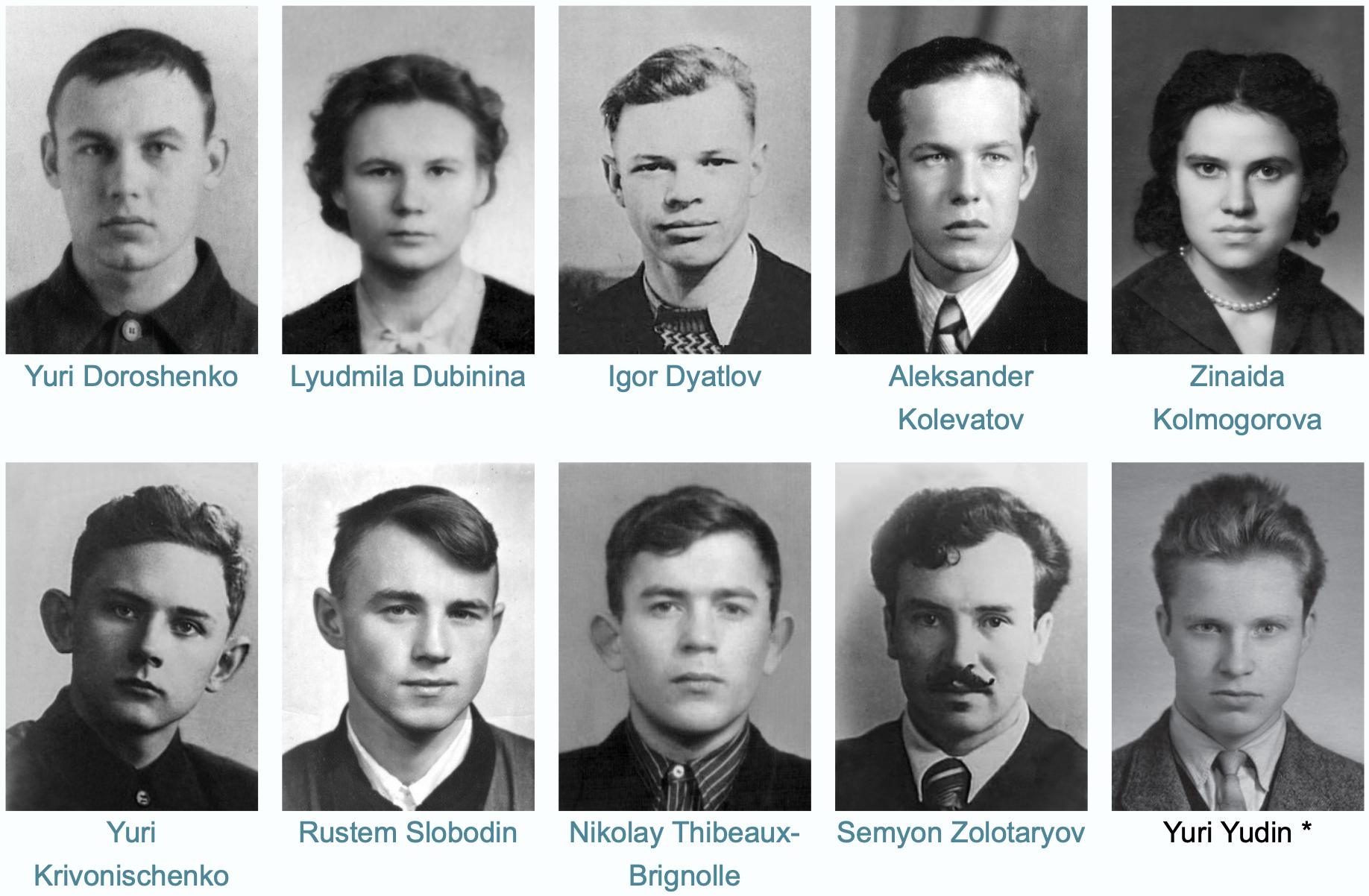



No responses yet